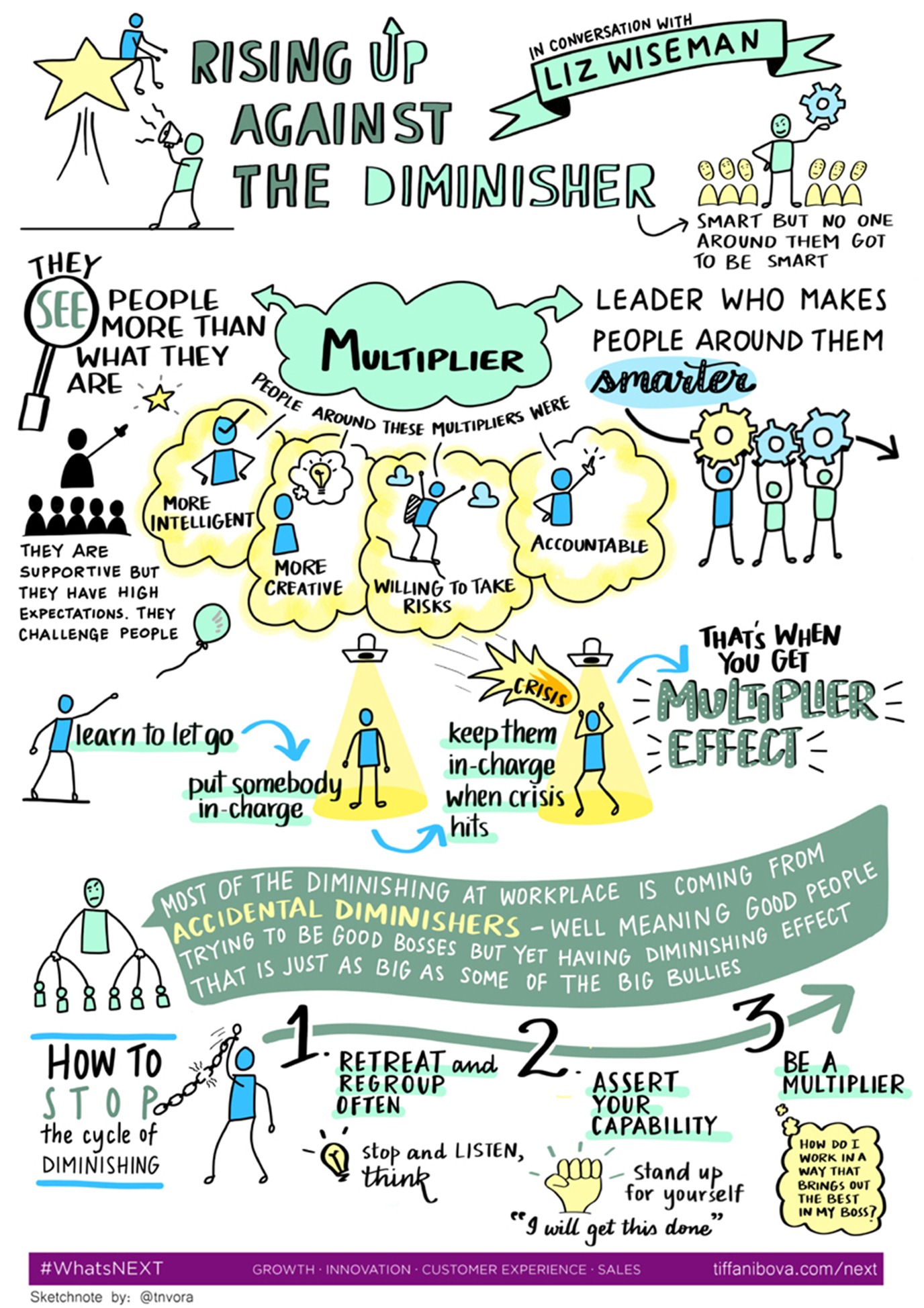Leaders as Multipliers
Tanmay Vora
I created a series of sketch notes for Tiffani Bova’s “What’s Next” podcast where she meets brilliant people to discuss customer experience, growth and innovation. Tiffani Bova is a Global Customer Growth and Innovation Evangelist at Salesforce. I will post sketchnote versions of selected podcast episodes that enlightened me. Tiffani is also the author of a WSJ bestseller book “Growth IQ: Get Smarter About the Choices that Will Make or Break Your Business”
The traditional (Tailorian) view of managing others was to “use people as resources to get work done” whereas the new context of work demands the mindset of “using work as a resource to develop people”.
It is a different conversation that sits on a fine line between tasks and relationships, between accountability and engagement.
Leaders cannot have limited view of people even when people themselves have a limited view of their own selves. Great leaders look at possibilities within people that people cannot see themselves to create pathways of performance. That’s when they create an ecosystem of trust, relationships and meaningful accomplishments with others rather than through others.
That’s when your leadership becomes a gift for others to create a multiplier effect.
“Multipliers see people more than what they are.”
I was fascinated by this conversation between Tiffani Bova and Liz Wiseman because it outlined what many of us may have experienced in our work life – dealing with a boss who was a diminisher instead of being a multiplier – people who are smart but they don’t enable others around them to be as smart.
In this conversation, Liz Wiseman offers very useful nuggets of wisdom on how to deal with diminishers and if you are a leader, how to be a multiplier.
In a nutshell, multipliers:
-
See people more than what they are.
-
Make people around them smarter.
-
Are supportive and have high expectations from others.
-
Challenge people.
-
Set the right context for others to perform.
-
Let go of control to put others in-charge.
-
Most importantly, let others be in-charge when crisis hits.
-
Support and coach others to bring out the best in them.
Do check out the full podcast episode here for more ideas. Here is a sketch note summary of some of the key insights.
Other Sketchnotes from WhatsNext Podcast:
- Technology and Being Human: Arianna Huffington
- Building a Culture of Excellence: Tom Peters
- On Disrupting Yourself: Whitney Johnson
- Storytelling in Business: Nancy Duarte
- The Human Side of Business: Seth Godin
